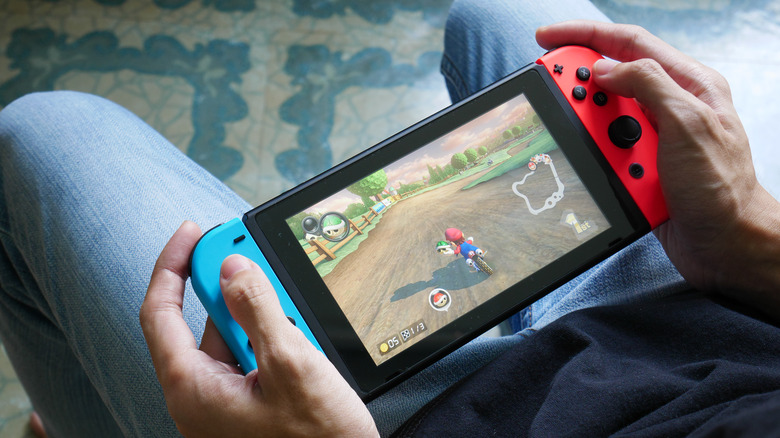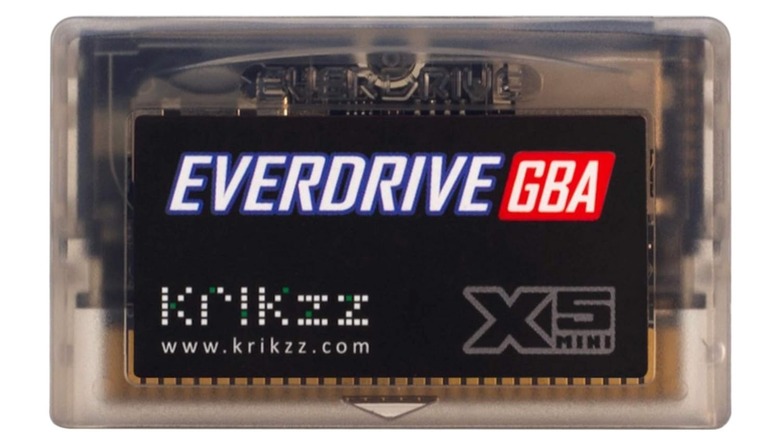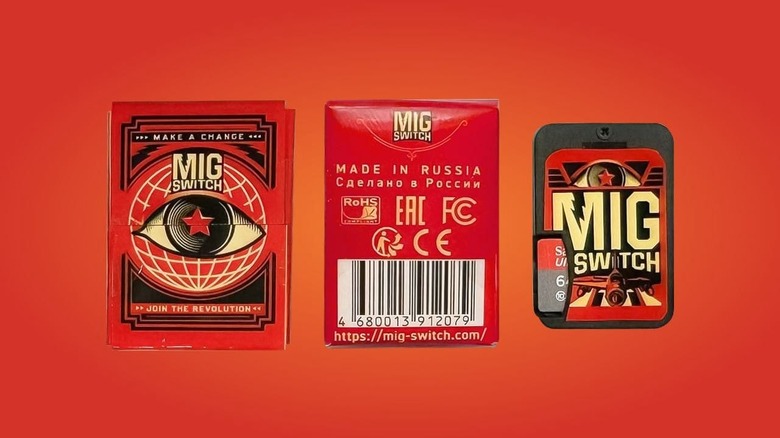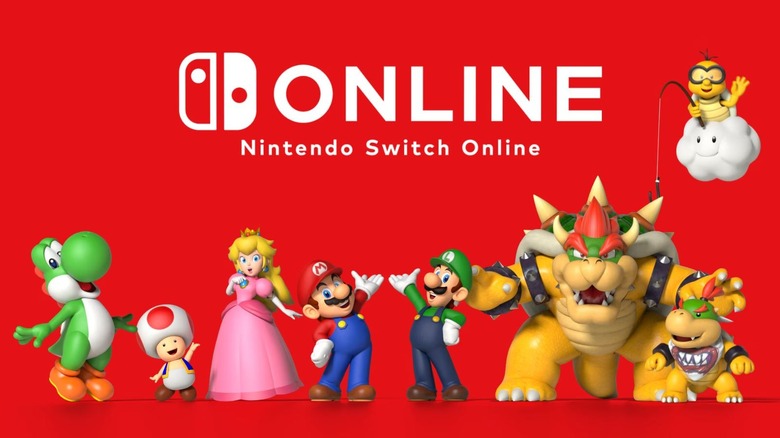What Is A Nintendo Switch Flash Cart, And Can It Get You Banned?
Whether you're looking to preserve your games for future generations or are dabbling in the homebrew scene, Nintendo's game consoles have never been readily accommodating of either. It's no secret that Nintendo has been very litigious, protecting its hardware and software with takedowns, lawsuits, and C&D orders. Even so, there has always been a steadfast scene of modders and homebrewers who have sought out ways to go around the restrictions with special tools.
One of the most popular of these tools is the flash cartridge, or flash cart for short. These devices have been a mainstay of homebrew (and a thorn in Nintendo's proverbial side) since the 90s, serving as a medium for both genuine efforts at software preservation and unscrupulous piracy. Since most modern consoles don't use cartridges anymore, flash carts were long considered a thing of the past, but thanks to recent advancements in homebrew tech, the dormant device has resurfaced for the Nintendo Switch. So, how do flash carts work — and perhaps more importantly — will using one with your Switch land you in hot water?
Flash cart function and history
In a nutshell, the purpose of a flash cart is to serve as a sort of false shell for standalone game ROM files. By mounting a ROM file into a physical cartridge like this, stored via its internal flash memory, you could plug it into its relevant console, going around built-in lockouts to play the game stored within. On paper, the primary purpose of this tech is to preserve backup copies of your games, as well as play homebrew games on their appropriate hardware. Of course, flash carts also became a major piracy tool, with users loading files onto carts for games they haven't purchased.
The first flash carts surfaced in the mid-90s, during the age of the Super Nintendo. Users could load cartridges into off-brand copier devices to extract their ROM files and load them onto homemade blank cartridges. Of course, back then, computer interfaces weren't as advanced as they are now, so the process of loading ROMs required extensive and unwieldy tinkering. The practice really came into its own in the early 2000s as multiple third-party companies released their own flash carts for the homebrew scene, many of which are still readily available.
Flash carts on the Switch
For the vast majority of the Switch's seven-years-and-counting lifespan, flash carts have not been in use. While there is a homebrew scene for the console, most of the modding takes place through direct PC connections and file manipulation. However, this changed with the recent release of a device called the MIG Switch.
The MIG Switch is a little device shaped like a Nintendo Switch cartridge with a port on the side for an SD card. You plug an official Switch cartridge into the associated MIG Switch dumper to retrieve the game files, load those files into a formatted SD card, and stick that SD card into the MIG Switch cartridge. Stick that into your Switch, and the console should read it like a genuine game cartridge, allowing you to load up the game files.
MIG Switch also allows you to load multiple game files and swap between them by ejecting the cartridge and then plugging it back into the Switch, which is actually kind of bad for the cartridge slot's loading mechanism (but at least it's convenient).
Will you get banned?
So, the million-dollar question, potentially literally given Nintendo's infamous legal department, is whether or not using a flash cart on your Switch would get you banned. The answer to that is a bit murky since the developers of the MIG Switch can't speak for Nintendo or its policies. That said, your odds of being banned are generally lower as long as you adhere to certain rules.
The most important thing is that the MIG Switch is only intended for backing up games that you have legally purchased. Every Switch game cartridge has a special identification code that marks you as its user while playing online. If you're using the MIG Switch in lieu of your actual copy while playing online, that should be fine. If you attempted to pass the copied version to a friend and both of you went online at the same time, Nintendo's servers would swiftly ping the same cartridge running in two places, which is an immediate ban flag.
It's also worth noting that different countries and territories regard the process of game backups differently. Flash cart use is still a gray area in the United States, for instance, whereas in the United Kingdom, following a 2010 lawsuit, the use of flash carts is completely outlawed. You'd do well to do some research on local copy protection laws before you attempt to use a flash cart. Even if you don't get banned, you might get sued.



